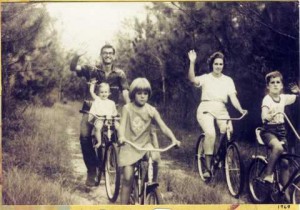Each semester, students in HIST 423 read scholarship about a particular group of American radicals and then conduct independent research on a historical question related to course themes. In the Fall 2014 semester, we will be focusing on Americans who formed utopian communities in the nineteenth and twentieth centuries.
American utopians were visionary people who believed they could change the world by living in particular kinds of small communities. For some utopians, these communities were means to other ends, instruments in a larger movement of social reform. For others, communities were ends in themselves, designed as radically different alternatives to mainstream society.
In this course, we will meet figures like John Humphrey Noyes, who founded a nineteenth-century religious community where members held property in common and practiced polygamous "free love" relationships. We’ll visit a group of liberal Southern Baptists in Georgia who founded an interracial cooperative farm called Koinonia Farm, which served as a seedbed for the present-day non-profit organization Habitat for Humanity. And we’ll also spend time with various socialists, hippies, and their heirs.
Throughout, we will not only read the latest historical scholarship about these radicals but will also conduct independent research projects. In the process we will also consider general scholarly debates about American reform and radicalism and explore the methods that historians use to explain past movements, understand their aims, and gauge their effects on society at large. Among the questions we will consider are these: How is historical knowledge made? If the past is past, why are historical interpretations still so contested? What makes one historical interpretation better than another? How are interpretations of radicalism in the past shaped by the times in which historians themselves write?
Required Books
The following books are available at the bookstore on campus and from various online retailers. All required books will also be placed on reserve at Fondren Library.
- Rosabeth Moss Kanter, Commitment and Community: Communes and Utopias in Sociological Perspective (Harvard University Press, 1972), ISBN: 0674145763
- W. Fitzhugh Brundage, A Socialist Utopia in the New South: The Ruskin Colonies in Tennessee and Georgia, 1894-1901 (University of Illinois Press, 1996), ISBN: 0252065484
- Tracy Elaine K’Meyer, Interracialism and Christian Community in the Postwar South: The Story of Koinonia Farm (University of Virginia Press, 2000), ISBN: 0813920027
Other required readings will be made available electronically on OWL-Space.


